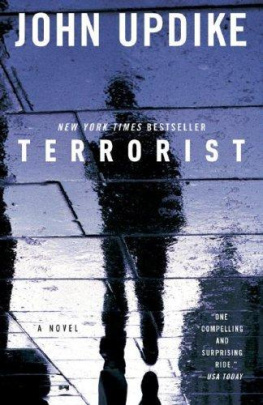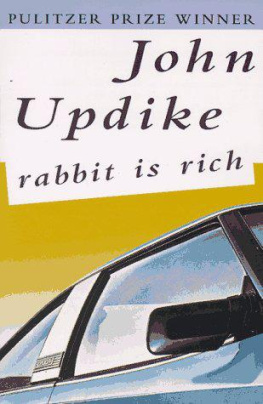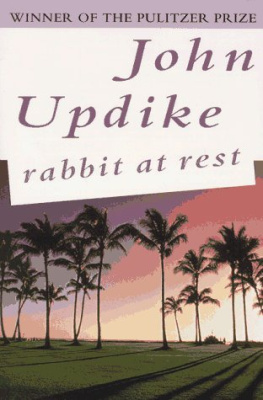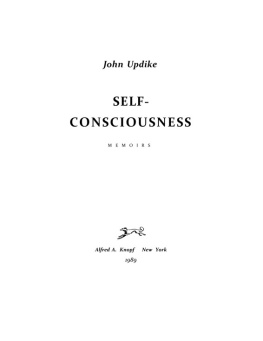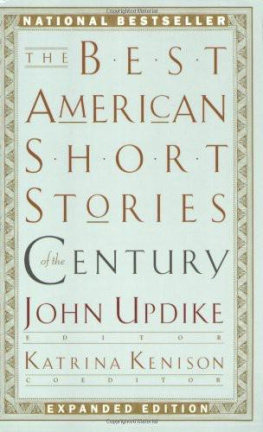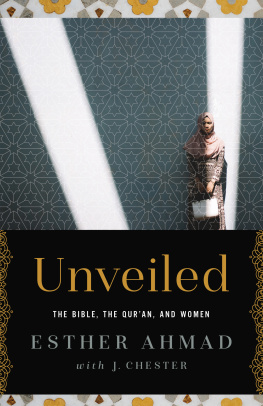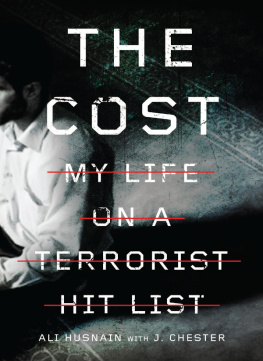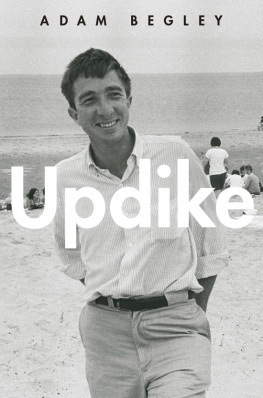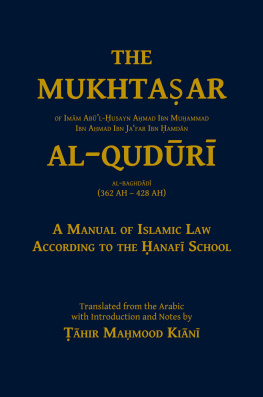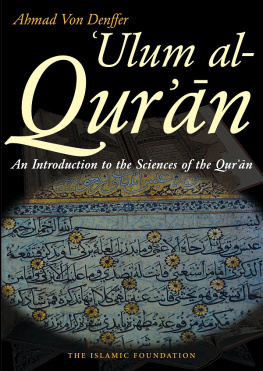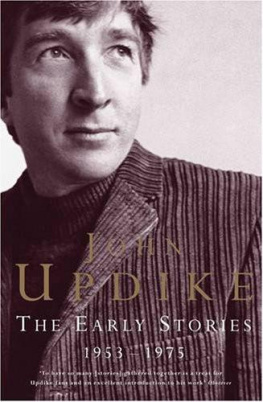John Updike
TERRORIST
Copyright 2006 by John Updike
The author thanks Shady Nasser for his invaluable guidance and
expertise concerning Arabic and the Koran, and Emily and
Gregory Harvey for, once again, supplying Philadelphia details,
and Paul Bogaards for his New Jersey expertise. Charlie Chehab's
version of the Revolutionary War in New Jersey owes much
to Washington's Crossing, by David Hackett Fischer. English
quotations of the Koran have been taken from translations
by J. M. Rodwell in 1861 and N.J. Dawood in 1956.
And now, O Lord, please take my life from me, for it is better for me to die than to live.
And the Lord said, "Is it right for you to be angry?" Jonah 4:3-4
Disbelief is more resistant than faith because it is sustained by the senses.
--GABRIEL GARCIA MARQUEZ,
Of Love and Other Demons
TERRORIST
I
DEVILS, Ahmad thinks. These devils seek to take away my God. All day long, at Central High School, girls sway and sneer and expose their soft bodies and alluring hair. Their bare bellies, adorned with shining navel studs and low-down purple tattoos, ask, What else is there to see? Boys strut and saunter along and look dead-eyed, indicating with their edgy killer gestures and careless scornful laughs that this world is all there isa noisy varnished hall lined with metal lockers and having at its end a blank wall desecrated by graffiti and roller-painted over so often it feels to be coming closer by millimeters.
The teachers, weak Christians and nonobservant Jews, make a show of teaching virtue and righteous self-restraint, but their shifty eyes and hollow voices betray their lack of belief. They are paid to say these things, by the city of New Prospect and the state of New Jersey. They lack true faith; they are not on the Straight Path; they are unclean. Ahmad and the two thousand other students can see them scuttling after school into their cars on the crackling, trash-speckled parking lot like pale crabs or dark ones restored to their shells, and they are men and women like any others, full of lust and fear and infatuation with things that can be bought. Infidels, they think safety lies in accumulation of the things of this world, and in the corrupting diversions of the television set. They are slaves to images, false ones of happiness and affluence. But even true images are sinful imitations of God, who can alone create. Relief at escaping their students unscathed for another day makes the teachers' chatter of farewell in the halls and on the parking lot too loud, like the rising excitement of drunks. The teachers revel when they are away from the school. Some have the pink lids and bad breaths and puffy bodies of those who habitually drink too much. Some get divorces; some live with others unmarried. Their lives away from the school are disorderly and wanton and self-indulgent. They are paid to instill virtue and democratic values by the state government down in Trenton, and that Satanic government farther down, in Washington, but the values they believe in are Godless: biology and chemistry and physics. On the facts and formulas of these their false voices firmly rest, ringing out into the classroom. They say that all comes out of merciless blind atoms, which cause the cold weight of iron, the transparency of glass, the stillness of clay, the agitation of flesh. Electrons pour through copper threads and computer gates and the air itself when stirred to lightning by the interaction of water droplets. Only what we can measure and deduce from measurement is true. The rest is die passing dream that we call our selves.
Ahmad is eighteen. This is early April; again green sneaks, seed by seed, into die drab city's earthy crevices. He looks down from his new height and thinks that to the insects unseen in the grass he would be, if they had a consciousness like his, God. In the year past he has grown three inches, to six feetmore unseen materialist forces, working dieir will upon him. He will not grow any taller, he thinks, in this life or the next. If there is a next, an inner devil murmurs. What evidence beyond the Prophet's blazing and divinely inspired words proves that diere is a next? Where would it be hidden? Who would forever stoke Hell's boilers? What infinite source of energy would maintain opulent Eden, feeding its dark-eyed houris, swelling its heavy-hanging fruits, renewing the streams and splashing fountains in which God, as described in the ninth sura of the Qur'an, takes eternal good pleasure? What of die second law of thermodynamics?
The deaths of insects and worms, their bodies so quickly absorbed by eardi and weeds and road tar, devilishly strive to tell Ahmad that his own death will be just as small and final. Walking to school, he has noticed a sign, a spiral traced on the pavement in luminous ichor, angelic slime from the body of some low creature, a worm or snail of which only this trace remains. Where was the creature going, its path spiralling inward to no purpose? If it was seeking to remove itself from the hot sidewalk that was roasting it to death as the burning sun beat down, it failed and moved in fatal circles. But no little worm-body was left at the spiral's center.
So where did that body fly to? Perhaps it was snatched up by God and taken straight to Heaven. Ahmad's teacher, Shaikh Rashid, the imam at the mosque upstairs at 2781 /? West Main Street, tells him that according to the sacred tradition of the Hadith such things happen: the Messenger, riding the winged white horse Buraq, was guided through the seven heavens by the angel Gabriel to a certain place, where he prayed with Jesus, Moses, and Abraham before returning to Earth, to become the last of the prophets, the ultimate one. His adventures that day are proved by the hoof print , sharp and clear, that Buraq left on the Rock beneath the sacred Dome in the center of Al-Quds, called Jerusalem by the infidels and Zionists, whose torments in the furnaces of Jahannan are well described in the seventh and eleventh and fiftieth of the suras of the Book of Books.
Shaikh Rashid recites with great beauty of pronunciation the one hundred fourth sura, concerning Hutama, the Crushing Fire:
And who shall teach thee what the Crushing Fire is?
It is God's kindled fire,
Which shall mount above the hearts of the damned;
It shall verily rise over them like a vault,
On outstretched columns.
When Ahmad seeks to extract from the images in the Qur'an's Arabicthe outstretched columns, ft 'amadin mumaddada, and the vault high above the hearts of those huddled in terror and straining to see into the towering mist of white heat, ndru l-ldhi l-muqada some hint of the Mer-ciful's relenting at some point in time, and calling a halt to Hutama, the imam casts down his eyes, which are an unexpectedly pale gray, as milky and elusive as a kafir woman's, and says that these visionary descriptions by the Prophet are figurative. They are truly about the burning misery of separation from God and the scorching of our remorse for our sins against His commands. But Ahmad does not like Shaikh Rashid's voice when he says this. It reminds him of the unconvincing voices of his teachers at Central High. He hears Satan's undertone in it, a denying voice within an affirming voice. The Prophet meant physical fire when he preached unforgiving fire; Mohammed could not proclaim the fact of eternal fire too often.
Shaikh Rashid is not much older than Ahmadperhaps ten years, perhaps twenty. He has few wrinkles in the white skin of his face. He is diffident though precise in his movements. In the years by which he is older, the world has weakened him. When the murmuring of the devils gnawing within him tinges the imam's voice, Ahmad feels in his own self a desire to rise up and crush him, as God roasted that poor worm at the center of the spiral. The student's faith exceeds the master's; it frightens Shaikh Rashid to be riding the winged white steed of Islam, its irresistible onrushing. He seeks to soften the Prophet's words, to make them blend with human reason, but they were not meant to blend: they invade our human softness like a sword. Allah is sublime beyond all particulars. There is no God but He, the Living, the Self-Subsistent; He is the light by which the sun looks black. He does not blend with our reason but makes our reason bow low, its forehead scraping the dust and bearing like Cain the mark of that dust. Mohammed was a mortal man but visited Paradise and consorted with the realities there. Our deeds and thoughts were written in the Prophet's consciousness in letters of gold, like the burning words of electrons that a computer creates of pixels as we tap the keyboard.

